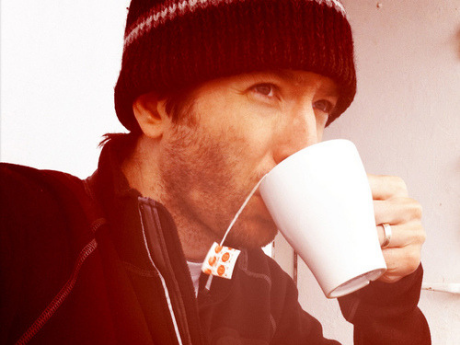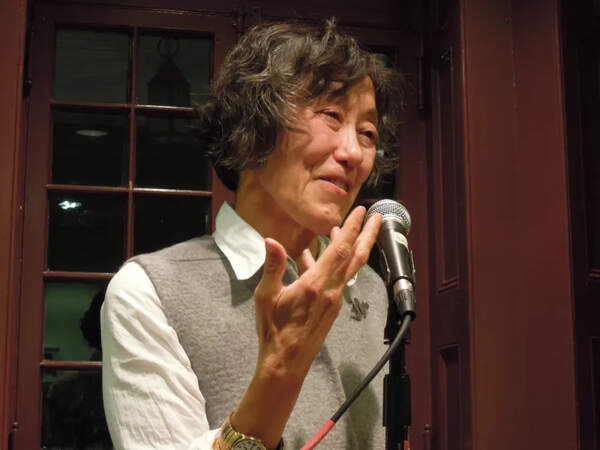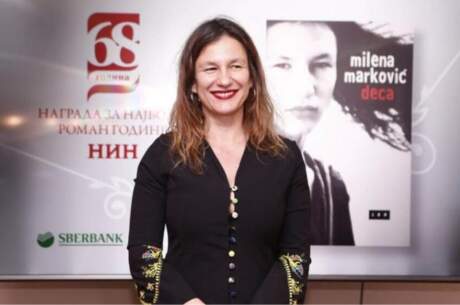Interviews
Poet Novelists: An Interview with Travis Nichols

Travis Nichols is the author of two collections of poetry— Iowa (Letter Machine Editions), and See Me Improving (Copper Canyon Press). He is associate editor at the Poetry Foundation, as well as editor of the online magazine Weird Deer and a regular contributor to The Believer, Paste, The Stranger, and the Huffington Post. In 2010, his first novel, Off We Go Into the Wild Blue Yonder, was released by Coffee House Press. The Poetry Society asked him about his experience as a poet writing a novel.
* * *
First off, how did it happen that you came to write Off We Go Into The Wild Blue Yonder? Did you forget for a moment that you were a poet? Were you challenging yourself? Or did the usual muse just tell you to do something different this time?
Am I a poet? I haven't written many poems lately, so perhaps I'm not actually a poet but rather an arts admin bureaucrat who had some possibly worthwhile daydreaming episodes years ago and now talks about those episodes as if he knows what he's talking about.
Am I a novelist? I probably need to publish another one to be considered as such. Oh well. Always challenging myself!
I wrote this novel and many poems at the same time when I lived in Seattle because back then I just assumed I would continue to feel plugged in and so I was prodigal. Why not? Looking back, it seems that nothing was a waste of time. There were no inefficiencies. It was endless potential energy, and I probably answered this very question in walks by myself to the library, one hand rolling forward professorially as the kids on the hot corner did their business oblivious to me. I wish I could remember what I said, but I haven't completed the narrative of this time in my life and so I forget. I think what I said to myself had something to do with how the story of its own making is central to the novel, both in general and in this particular case. I wanted to tell a story in order to live but didn't know how. Inspired by Anselm Berrigan's story of how he came to write the book of poems Zero Star Hotel—so I hear, he wrote out zeros and ones until he felt his mind was sufficiently blank to begin—I tried various techniques to blank out my mind and listen to what voices crept in. The voice of this narrator was the most persistent, and he seemed to have some idea of how a story might could get told. So I tried to write down what I heard in the same way that I do when (theoretically) writing poetry.
Your protagonist has a voracious appetite for stories—hearing and telling them, titling and re-titling episodes as they are unfolding ("How I Want to be Madame Psychosis", "The Man in the Tan Hat and His Bloody Greasy Steak", "Almost Building a Tower of History in Chicago")— a hyper-awareness which vacillates between a distrust of storytelling, and a sort of desperate faith in it. I wonder what your own relationship to storytelling is? How do you think it manifests in your poems?
See above. And below.
I think most readers would agree that your mode of writing—it's an epistolary novel, which the letters divide into short sections that cycle backwards and forwards through time, but read with a consistently quick, incantatory rhythm—is very poetic. Was this prose style natural to you, or did you have a sense of conscious experimentation?
At the risk of making the novel seem like the most annoying book ever written, I tried to make it consciously frustrate the suspension of disbelief necessary for any story to be told while at the same time indulging in the most storybook tropes imaginable. I set out to write a tearjerking historical potboiler, but this narrative voice I liked so much found that worrying the mechanics of tearjerking potboiling narratives to be irresistible. I gather that this makes for a schizo reading experience, but the writing that inspires me the most conjures the schizo. So.
There's a way in which writers of certain kinds of narratives put on a show, one that feels completely ridiculous to me. If I were to begin a novel, as Jennifer Egan does in Visit From the Goon Squad, with a flourish such as "It began in the usual way. Sasha was adjusting her yellow eye shadow in the mirror . . . ", I would feel as if I were walking down Michigan Avenue in a Civil War uniform swinging a rubber sword. Even reading a book like that, or like David Mitchell's Cloud Atlas, I feel as if I'm watching some ridiculous pageant put on by scenery-chewing players, Al Pacino in The Diary of Anne Frank. Eventually I get into it, and I play along, but there's always some desire to pull the writer aside to ask who he or she is trying to kid. C'mon, Al. This is silly! It's like karaoke but done seemingly in all seriousness and earnestness and thus it is "virtuosic." Huh? It's a beautiful scam. I assume this attitude of mine, this eye-rolling, is a flaw, an indication that I'm not a joiner, and that there's a throughline from it to my mediocre math grades in high school, but the work of writers who counter readerly skepticism with deadly serious play, writers such as Leonard Michaels, Grace Paley, Jamaica Kincaid, Laurence Sterne, Thackery, etc. who show that I'm not the only one worrying over such things. And thus I have my tradition, or what to aspire to on my good days.
The obvious question, but one that holds a certain fascination for poets: how did you think the process of writing a novel differed from the process of writing poetry?
Not so different. If one were to write a third person spy novel it might feel very different, but, then again, not if your poetry was primarily conceit-driven or based on a self-made "system." In fact, I think a lot of conceit-driven poetry books, like a book whose first lines come from every third line of Adorno's Aesthetics or something, are essentially just shitty novels with their narratives erased. Which is not to say bad. There's something of the exercise to prose writing, much more of a fake it 'till you make it quality, a "big old tomb," Eileen Myles says, like playing the verse chorus and verse again duly until you get to the solo where you may, as they say, wank. Whereas the good poems are all wank. Perhaps this is not the best way to talk about these things. Well, I couldn't imagine a bursting-with-life poet like Philip Lamantia writing a novel, for example, unless it came to him in one long flaming night of dictation. But this novel that I wrote? I knew would be a "poet's novel" in the sense that it would double back and crumple in on itself, so I wanted to make that doubling and crumpling part of the structure. Like poetry.
And will you write another?
I think so, yes.


